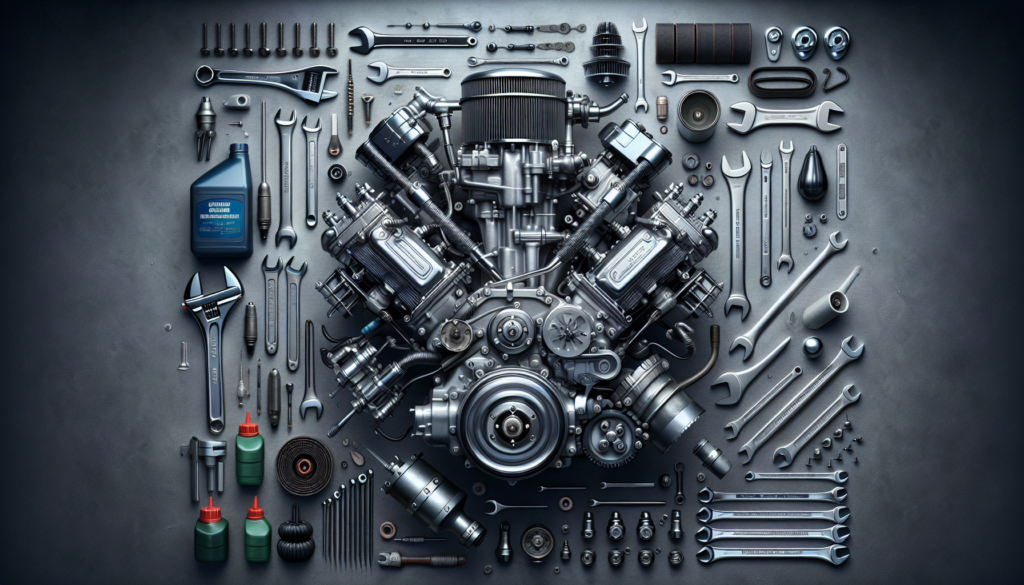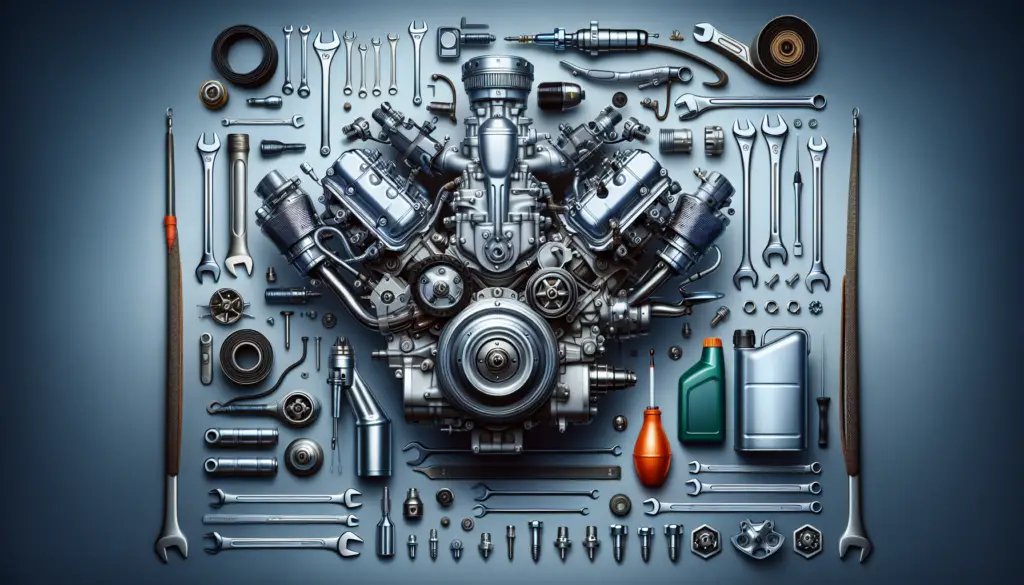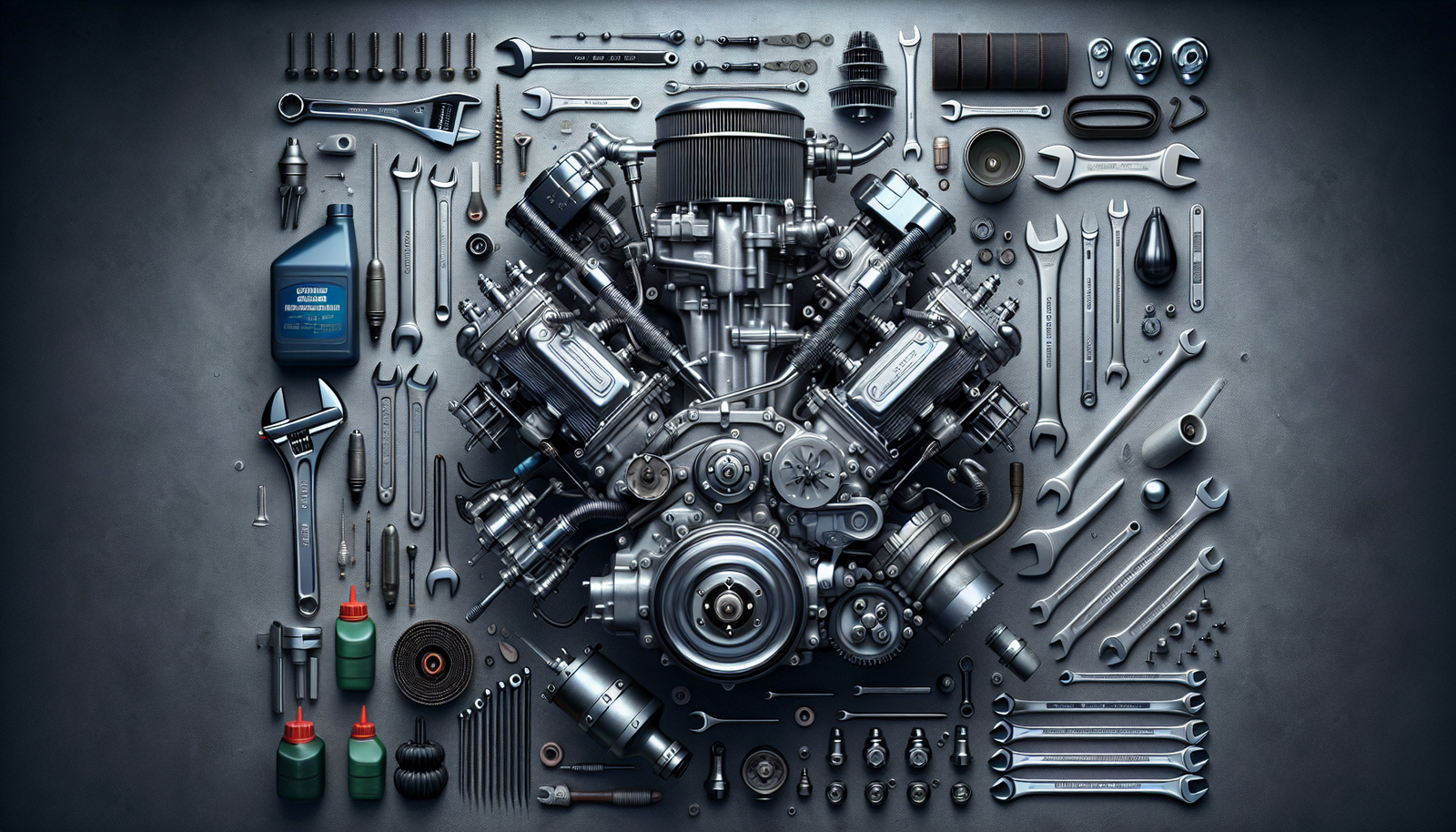As a fishing enthusiast, it’s not just the rods, lines or bait that matter; how well you maintain your boat’s engine plays an equally important role too. The article “Top 5 Boat Engine Maintenance Tasks Every Fishing Enthusiast Should Know” offers you an essential guide to keep your boat’s engine in top-notch condition. It provides five crucial tasks that, when performed regularly, ensure optimal and consistent performance of your boat’s engine. So, don’t let an unattended engine stand in the way of your perfect fishing trip. Learn, understand, and adopt these maintenance tasks to fend off potential engine problems and keep your fishing trips smooth sailing.

Understanding the Importance of Engine Maintenance
Just like regular health checks for you, engine maintenance is of utmost importance for your boat. While most of us understand the cruciality of preserving the aesthetics of the boat, a well-functioning engine ensures its longevity and consistent performance.
Highlighting the Reasons for Engine Maintenance
Engine maintenance saves both, your time and money. We’re all familiar with the phrase – “Prevention is better than cure.” It stands true for boat engine maintenance as well. It not only helps keep your boat functioning optimally but also avoids big, expensive and unexpected failures.
How Engine Maintenance Impacts the Longevity and Performance of the Boat
Regular engine care directly affects the longevity of the boat. The engine has multiple parts that wear and tear over time, and if they’re neglected, can lead to major issues that may even involve engine replacement. Regular maintenance also affects the boat’s performance. After all, a boat’s speed, ability to navigate rough waters and fuel efficiency all depend on a healthy engine.
Effects of Lack of Regular Maintenance
A neglected engine is an accident waiting to happen. It could simply refuse to start or overheat, and these issues are likely to happen when you least expect them to. It could also lead to lower fuel efficiency, increased emissions, and even a total engine shutdown.
Understanding Your Boat Engine
Your boat’s engine is a marvel of modern engineering, built to withstand extreme conditions and run efficiently. Understanding the basics of your boat engine, its parts, their functionality, and common problems associated with them is the first step in better maintenance.
Understanding Basic Parts of Boat Engine
The basic parts of a boat engine include the Propeller, Spark Plug, Fuel Filters, Oil Filter, Engine Oil, and Battery. Each part has a significant role in the functionality of your vessel.
Functionality of Each Part
The propeller propels the boat, the spark plug ignites the air-fuel mix in the engine, fuel filters ensure the efficient running of the engine by filtering out foreign particles, and the oil filter plays a key role in filtering engine oil.
Understanding Common Engine Problems
Common engine problems often involve fouled spark plugs, clogged fuel filters, corroded parts, depleted engine oil, or an aged battery. Recognizing these issues early on can save you from stressful and often costly repair work.
Routine Checks and Maintenance
Maintaining a regular check-up routine will go a long way in assuring the smooth running of your boat. Indeed, these routine checks go beyond just ensuring that the engine starts and runs well.
Importance of Regular Engine Checks
Regular engine checks allow you to spot minor problems that can turn into significant issues. In addition to the engine, it’s equally important to check other elements of the boat like electrical systems, propeller, and safety equipment.
Setting Up a Maintenance Routine
If you’ve never taken the time to establish a maintenance routine for your boat, now is the time to get started. Start by deciding on a schedule that works for you – weekly, monthly or twice a year depending on how often you use your boat.
Weekly and Monthly Check-Up Routines
The weekly check-up should look into the engine oil level and battery charges. The monthly routine can include a thorough exterior wash, check on engine belts, inspection of spark plugs, and more. The idea is to ensure everything is in good shape for the next journey.
Changing Engine Oil
The engine oil is literally the lifeblood of your boat’s engine. It lubricates everything and keeps things running smoothly. So, it is important to change the engine oil regularly.
The Need for Regular Engine Oil Changes
Over time, engine oil becomes dirty and loses its lubricating qualities. Regular oil changes ensure your boat engine works smoothly and stands the test of time.
Using the Correct Type and Quantity of Oil
It’s crucial not only to change the oil regularly but also make sure you’re using the right kind. Check your boat’s manual to ensure you are using the right type and quantity of oil.
Proper Method of Changing Engine Oil
Changing engine oil involves a few basic steps: warm up your engine, turn it off, use an extractor pump to remove the old oil, and finally add new oil. Always dispose of the old oil responsibly.

Changing Fuel Filters
Fuel filters safeguard your boat’s engine from unexpected problems. They filter out impurities from the fuel, and over time, they become dirty and less effective.
Determining When to Change Fuel Filters
It’s recommended to change your fuel filters once a year or every 100 hours of engine operation. However, keep an eye on the performance of your engine. If it starts to stutter or hesitate, it might be time for a change.
Choosing the Correct Fuel Filters
Not all fuel filters are the same, and using the wrong type can lead to problems. Always use the type recommended by your boat’s manufacturer.
Correct Procedure to Change Fuel Filters
To change a fuel filter, you’ll need to close the fuel valve, loosen the filters with a wrench, replace them with new ones, and finally reopen the fuel valve. Always check for leaks before starting your engine.
Inspecting and Replacing Spark Plugs
Your boat’s spark plugs play a key role in your engine’s performance. They help ignite the fuel-air mixture in your engine, effectively kick-starting your vessel.
Significance of Spark Plugs in Boat Engines
The health of your spark plugs directly impacts the engine’s performance. A good spark plug ensures optimal fuel economy, smooth starts, and overall superior engine performance.
How to Inspect Spark Plugs
Inspecting your spark plugs often can help point out issues before they become critical. Look for signs of burns, oil deposits or cracks. If you notice any of these, it’s time to replace them.
Replacing Spark Plugs When Necessary
If your spark plugs are damaged or worn out, they should be replaced immediately. Follow your boat’s manual for the correct specs and replacement procedure.
Checking the Propeller
The propeller is key to the movement of your boat, converting the engine power to thrust that propels your boat through the water.
Why Regular Propeller Checks are Crucial
Regular inspections will detect any flaws in your propeller, making sure it is not only safe but also economical. An efficient propeller leads to less force on the engine and therefore saves fuel.
Identifying Problems with the Propeller
Look for cracks, chips, dents or any other sort of damage. A damaged propeller can cause imbalance leading to undue vibration and strain on the bearings.
Fixing or Replacing a Damaged Propeller
Getting ahead of these issues helps you avoid major complications down the line. Fix or replace damaged propellers immediately.
Inspecting the Cooling System
The cooling system keeps your engine from overheating, which is crucial, especially when your boat is used in hot conditions.
Understanding the Function of the Cooling System
The cooling system regulates engine’s heat, preventing it from getting too hot, which could damage parts of the engine beyond repair.
Spotting Signs of Cooling System Problems
You should be alert to any change in the temperature gauge. Frequently check for leaks, coolant fluid level, and the condition of hoses and belts.
Cooling System Maintenance Tips
Routine maintenance should involve checking the coolant levels and condition of hoses and belts. Also, flush the cooling system as per the manufacturer’s schedule.
Keeping the Battery in Good Condition
The starting battery is the heart of the electrical system for your boat. Without a well-maintained battery, you’ll find yourself being literally, “up a creek without a paddle.”
Importance of a Well-Maintained Battery
Maintaining the battery ensures it is ready to go when you are. A dead battery means a stranded boat. To avoid such a scenario, it is necessary to maintain the battery regularly.
Battery Maintenance Tips
Regular inspection for corrosion, cleaning terminals, and ensuring the battery is fully charged will help in maintaining the battery health.
How to Know When to Replace Battery
Usually, batteries last around three to five years. However, if you find your battery can’t hold a charge, it’s time to replace it.
Preventing Engine Corrosion
Corrosion is an enemy to your boat engine. It erodes the metal components, causing them to weaken and fail eventually.
How Corrosion Affects the Engine
Corrosion erodes your engine parts, affecting their strength and compromising the whole system. The parts lose their shape and ability to function, leading to a significant reduction in performance and safety.
Tips for Preventing Corrosion
Regular engine washdowns, use of anti-corrosion sprays, keeping bilges clean and dry, and anode replacement are some tips to prevent corrosion.
What to Do When You Spot Corrosion
When you spot corrosion, it’s important to treat it immediately before it spreads further. Use a wire brush or sandpaper to remove it, then cover the area with an anti-corrosive coating. It’s always better to go for professional help for severe cases.
End your boating season with a peace of mind by taking some quality time out for boat engine maintenance because, at the end of the day, the engine is the heart of the boat, and a little care will ensure that it keeps beating strong.

